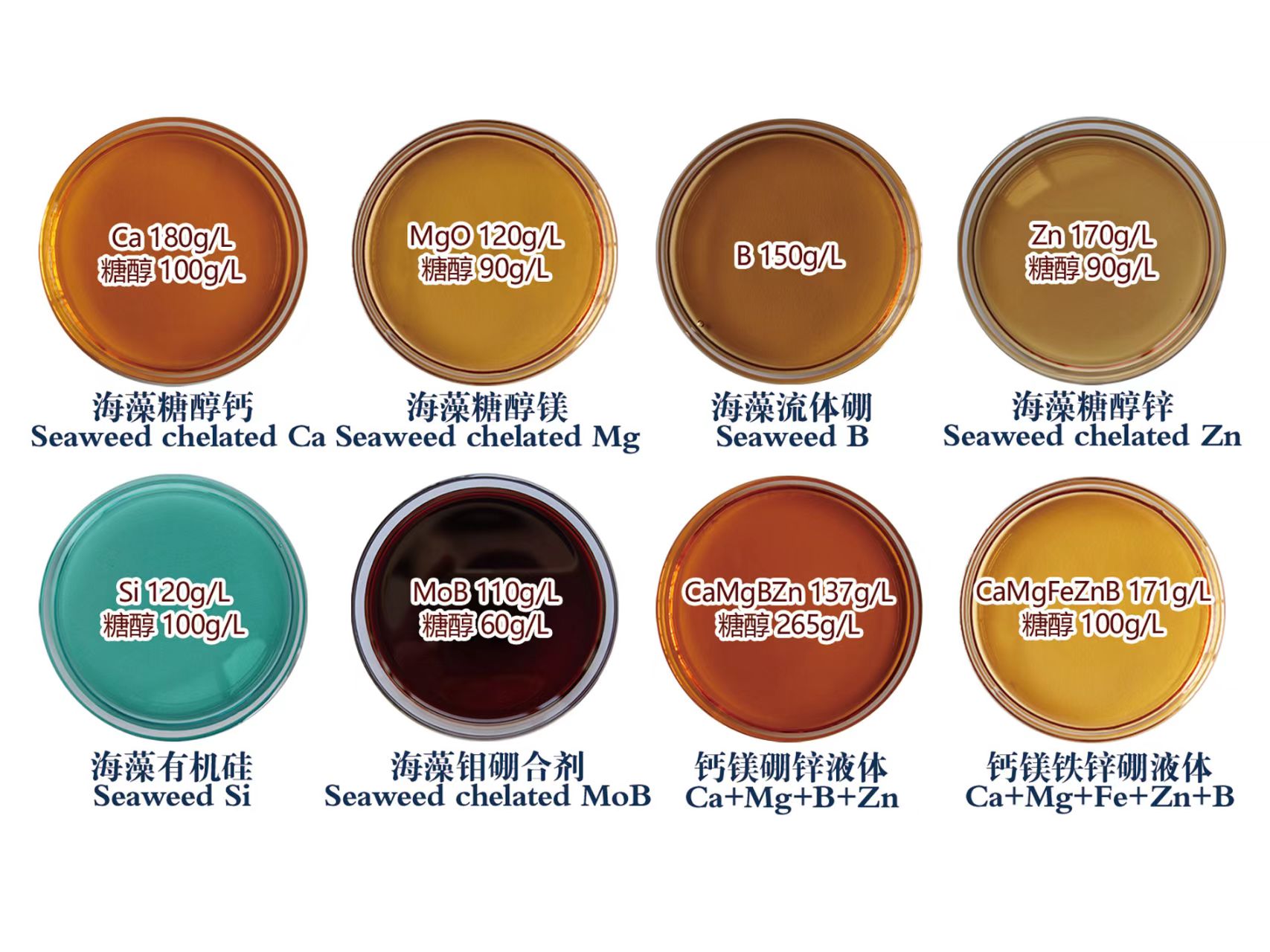What Are the Effects of Mannitol on Crops?
The phloem is the primary pathway through which essential nutrients, such as minerals, sugars, and carbohydrates, are transported to plant organs. However, many mineral nutrients face challenges in phloem transport, often leading to physiological disorders. Mannitol plays a critical role by facilitating the direct transport of mineral nutrients through the phloem to various organs. Once delivered, these nutrients are decomposed and absorbed by the plant to support growth.
Key Features of Mannitol:
1. Excellent Chelating Agent for Micronutrients
Mannitol forms stable complexes with various nutrients, acting as a carrier that enhances nutrient absorption.
2. Dual Transport Pathways in Alkaline Environments
Since the plant phloem is alkaline, transporting metallic ions is challenging. Mannitol is the only substance capable of carrying micronutrients through both the phloem and xylem,
ensuring efficient delivery.
3. Low Molecular Weight for Rapid Transport
Mannitol’s small molecular size allows it to easily penetrate leaf tissue and move quickly within the plant, reducing nutrient retention, facilitating decomposition, and minimizing
energy consumption. Additionally, it supplements energy and organic carbon.
4. Natural and Non-Toxic
As a product of photosynthesis, mannitol is a pure plant extract that is safe for plants and animals. Its natural wetting and adhesion properties enhance moisture retention and
resistance to rain, preventing nutrient loss due to rapid drying on leaf surfaces. This extends the nutrient absorption window and prevents leaf scorch caused by localized high
concentrations of micronutrients.
5. Improves Stress Resistance
Mannitol enhances crops’ ability to withstand environmental stress. It regulates osmotic pressure within cells during conditions like salinity, drought, or flooding, enabling plants
to adapt to adverse conditions. Furthermore, mannitol helps resist oxidative damage caused by active oxygen species under stressors such as sunburn, drought, or disease.

Why Do Crops Experience Calcium Deficiency?
Calcium is primarily absorbed through the root hairs of crops and transported upward via transpiration to various parts of the plant. However, due to the lower transpiration rates
in leaves and fruits, calcium deficiencies are common in these areas. Moreover, calcium’s low mobility can lead to the formation of calcium salt precipitates within the plant,
causing blockages.
Why Is Calcium Supplementation Important?
Calcium plays a crucial role in promoting the absorption of nitrogen, phosphorus, and potassium within plants. Proper calcium supplementation can:
• Prevent issues such as stunted young leaf growth, chlorosis, and fruit disorders like sunken spots or discoloration.
• Enhance fruit quality and yield.
• Reduce respiration rates in fruits, extending their storage life.
Why Is Sugar Alcohol Calcium Highly Absorbable?
Calcium bound to sugar alcohol (mannitol) is recognized by the phloem as a sugar alcohol, enabling efficient absorption and transport. Its ability to move through the phloem
and stay active ensures high utilization rates. Additionally, mannitol calcium’s moisture-retention properties allow the solution to remain evenly distributed on leaf surfaces for
extended periods, maximizing calcium absorption time.
Benefits of Sugar Alcohol Calcium for Crops
1. Enhances Calcium Content in Fruits
• Increases fruit peel toughness, preventing cracking.
2. Prevents Disorders Like Watercore
• Supports sorbitol metabolism and prevents oxalate crystal deposits in fruit stems that block sorbitol entry.
3. Maintains Fruit Firmness
• Suppresses cell wall degradation and delays fruit softening.
4. Reduces Hollow Fruits
• Inhibits enzyme activity responsible for structural damage.
5. Prevents Woodiness
• Reduces lignification in stems and fruits.
6. Strengthens Cell Walls and Membranes
• Protects against pathogens and enzymatic damage, ensuring better fruit quality.
7. Improves Wax Layer Synthesis
• Promotes thicker wax layers, enhancing fruit appearance and quality.
8. Prolongs Shelf Life
• Spraying during early fruit development stabilizes pectin structure, increases fruit firmness, and extends shelf life.
9. Eco-Friendly and Safe
• Sugar alcohol calcium is biodegradable, non-toxic, and leaves no residue on fruits, ensuring safety and sustainability.




 Mobile: 86-13012553585 15610518510
Mobile: 86-13012553585 15610518510 Phone (Fax):86-53283197178
Phone (Fax):86-53283197178 E-mail: admin@bluealga.com
E-mail: admin@bluealga.com Add:No.918 Lingang 8 Road Huangdao District,Qingdao China 266400
Add:No.918 Lingang 8 Road Huangdao District,Qingdao China 266400

